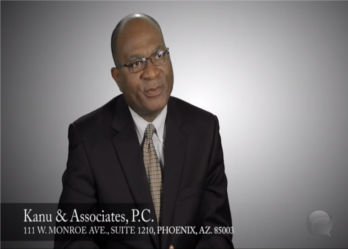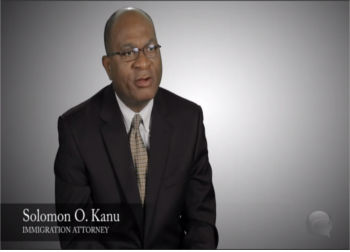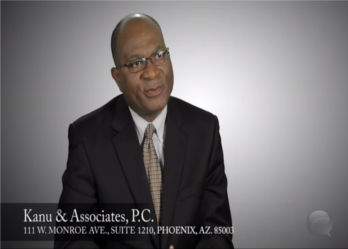Business Immigration Services | Phoenix Immigration
Solomon O. Kanu
Business Immigration
Immigrants that come to the United States are very varied people. Some of them have a lot of skill. Some of them, once they get their permanent residency or they get U.S. citizenship, the next thing they want to do is to start up a business. They want to own homes. They want to buy franchises. They want to be part of this big pie. United States is a wonderful country. People want to be here. People want to tell their story. People want to be part of this dream, and so we help them to start companies, advise them on the best structure that they can use, advise them of how to make sure that they keep the company running and running well, and help them actually to grow. Because one of the things that we find is that when immigrants come here and they get their permanent residency or their U.S. citizenship, the next thing is: I want to be like any other United States citizen. I want to be– I want to get to the top. And so we help them to set up businesses, buy franchises.
Setting Up Businesses
We just bought one for some Canadian resident that came to United States, and we did his immigration work, and we got him a (good) place. We’ve done that for so many other companies. And so, setting up businesses for immigrants is one of the things we do. Like I said, the difference between our law firm and other immigration law firms is that we are the immigrant’s lawyer. We are not the immigration lawyer. We are the lawyer for immigrants, taking care of their immigration needs, their criminal defense issues should the arise, their tax issues if they have tax problems, their business issues. So it’s a shop that helps the immigrants come into United States, stay in United States, succeed in United States, and make a difference in United States.
By: Solomon Kanu
Business Immigration
Immigrants that come to the United States are very varied people. Some of them have a lot of skill. Some of them, once they get their permanent residency or they get U.S. citizenship, the next thing they want to do is to start up a business. They want to own homes. They want to buy franchises. They want to be part of this big pie. United States is a wonderful country. People want to be here. People want to tell their story. People want to be part of this dream, and so we help them to start companies, advise them on the best structure that they can use, advise them of how to make sure that they keep the company running and running well, and help them actually to grow. Because one of the things that we find is that when immigrants come here and they get their permanent residency or their U.S. citizenship, the next thing is: I want to be like any other United States citizen. I want to be– I want to get to the top. And so we help them to set up businesses, buy franchises.
Setting Up Businesses
We just bought one for some Canadian resident that came to United States, and we did his immigration work, and we got him a (good) place. We’ve done that for so many other companies. And so, setting up businesses for immigrants is one of the things we do. Like I said, the difference between our law firm and other immigration law firms is that we are the immigrant’s lawyer. We are not the immigration lawyer. We are the lawyer for immigrants, taking care of their immigration needs, their criminal defense issues should the arise, their tax issues if they have tax problems, their business issues. So it’s a shop that helps the immigrants come into United States, stay in United States, succeed in United States, and make a difference in United States.
By: Solomon Kanu






